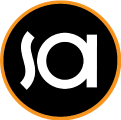Steve Bedrick, Assistant Professor OHSU Center for Spoken Language Understanding Classes & Camps program, 1991
You never know when you’re going to run into someone in the Portland area that took a Saturday Academy class or participated in one of our ASE Internships. Our Executive Director, Jeri Janowsky, met Steve Bedrick, an alumnus of our Classes & Camps program, at an event last week and I had the opportunity to talk with him about his experience with SA from 1991 and beyond.
Bedrick works in the area of Computational Linguistics. In case you don’t know what that is (and I didn’t), here’s his brief overview: “Computational Linguistics is a field that uses computational techniques to model different aspects of human language. Our group develops algorithms that analyze language samples from people to try to identify different cognitive impairments and speech or language disorders.”
A Portland native, Bedrick says, “SA was a great way to meet other kids from all over the city who were interested in similar nerdy things as me.”
One class on anatomy in 1991 was particularly inspiring. Bedrick was in 5th grade when Leonardo Da Vinci’s Anatomy Notebook was touring the country and came to Portland. An SA class on anatomy took advantage of this tour and brought students to OHSU to see the manuscript and experience medical labs up-close and hands-on.
“The first part of the day we spent in the old library [reviewing] a section of the notebook… In the afternoon, we’d go to one of the cadaver labs at OHSU and someone would walk us through a dissection of whatever we had been reading about. It was just really cool! We’d look at lungs in the notebook. In the cadaver lab we’d see lungs from someone that smoked and someone that didn’t. I was certainly never planning to become a smoker but that definitely confirmed that,” he says.
Students learned about the proper handling of ancient manuscripts as well. This cross-discipline instruction is by design. At SA, our instructors frequently connect a variety of disciplines within any individual class. Take an Animated Math class and you’ll not only improve your proficiency in math, you’ll learn computer programming skills and try your hand at fine arts; try The Future of Design: Tiny houses and you’ll gain skills in basic architectural design as well as programming with Google SketchUp; in Future Engineers, 2nd to 4th graders gain problem solving and critical thinking skills while learning about the field of engineering.
Our instructors are experts in their fields interested in sharing their passions and careers with young people. SA students have the opportunity to experience what it’s like to work in a medical lab, a construction site, an engineering firm and more.
Bedrick adds, “One of the big meta-learnings that I had from [classes at SA] was how to be in adult spaces and how to act and talk with professional adults. They clearly [design] the program to make it work out for kids so get a lot out of it…It was really influential. I attribute a lot of what I’ve done since back to that experience.”

